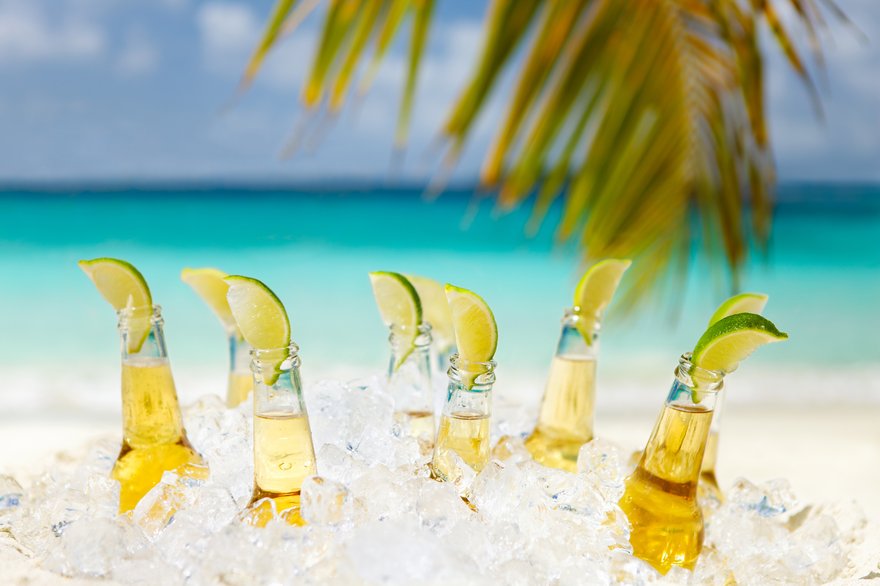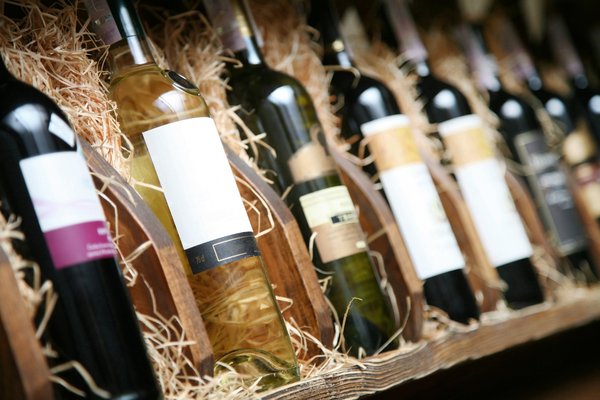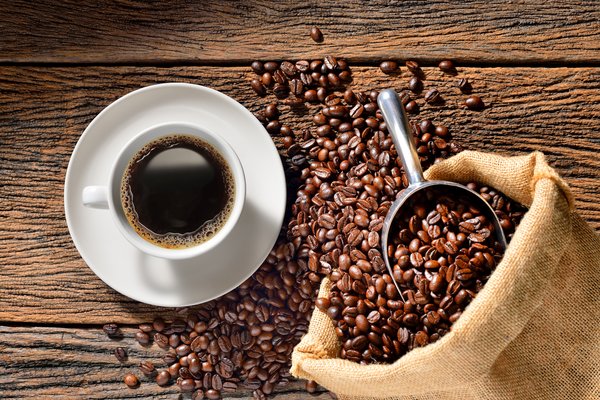It's hard not to love an industry that's both timeless and recession-proof, and that's exactly what you get with beverage stocks. Whether it's coffee, tea, soda, or beer, people have been paying to slake their thirst for centuries, and the industry's reliability has helped create some of the world's most valuable brands.
Even better, the industry tends to offer high-profit margins thanks to high barriers to entry. In the beverage sector, large brands and global distribution networks dominate. Keep reading to learn more about the top beverage stocks in 2025.

Beverage stocks
Beverage stocks to watch in 2025
Beverage companies fall into the larger category of consumer staples or consumer packaged goods -- products that people keep buying regardless of the state of the broader economy. These companies sell bottled and canned drinks in a wide range of locations, including supermarkets, convenience stores, restaurants, and bars.
1. Coca-Cola
Coca-Cola (KO -0.19%) is the world's largest beverage brand, but the company is much more than just its namesake drink. It owns many brands, including Minute Maid juice, sports drinks such as Powerade, and a stake in Monster Beverage (NYSE:MNST).
In recent years, the company has stepped up its efforts to diversify, acquiring Costa Coffee for $5 billion in 2019. After pandemic-induced volatility, Coca-Cola has stabilized and continues to deliver steady growth, passing along price increases and benefiting from an unmatched distribution network and marketing power.
For 2024, it reported organic (non-generally accepted accounting principles, or non-GAAP) revenue growth of 12% as it benefits from a number of markets experiencing high inflation. It also posted currency-neutral earnings per share (EPS) growth of 16. Those are outstanding numbers for a mature business like Coca-Cola, but investors should expect them to moderate as inflation cools.
2. PepsiCo
Coca-Cola's chief rival, PepsiCo (PEP -1.88%), has the benefit of being diversified into food and snacks. In addition to its ownership of beverage brands such as Pepsi, Mountain Dew, and Gatorade, it also owns the Frito-Lay snack brand and Quaker Foods.
Snack food sales have outperformed soda sales in recent years, giving Pepsi an advantage over pure-play soda companies like Coke. Quaker has also given the company additional exposure to the supermarket channel.
However, a recall of dozens of Quaker granola products weighed on the 2024 results, and the company also faced business disruptions and other geopolitical tensions. As a result, revenue growth was underwhelming in 2024, but its cost controls have helped drive core constant-currency EPS up 9% for the year.
3. Monster Beverage
Believe it or not, Monster Beverage has been one of the best-performing stocks on the market since its 1992 initial public offering (IPO) and is up more than 250,000% since then. What was once a tiny beverage company called Hansen Natural struck gold in the 1990s when it acquired the Monster brand, which followed in Red Bull's footsteps to become the No. 2 energy drink in the U.S.
The company remains a high-margin winner today, having ridden the energy drink boom and spun that brand into multiple flavors and subtypes. While there are signs that growth in the energy drink market is finally starting to slow, the company should continue to enjoy leading market share thanks to its partnership with Coca-Cola, widespread distribution, and well-known brand.
4. Celsius Holdings
The latest buzzy energy drink maker to capture investor attention is Celsius Holdings (CELH -0.98%). The stock jumped more than 5,000% from 2020 to its peak in 2024 but has fallen since then on concerns about slowing growth and a pricey valuation.
The company, which has a reputation as a healthier energy drink maker, partnered with Pepsi, which took an 8.5% stake in the energy drink brand. However, Pepsi ordered too much inventory, leading to a slowdown in sales for Celsius in 2024 as it corrected for that and "optimized" its supply chain.
That correction leaves a fair amount of uncertainty around Celsius, especially given the broader slowdown in energy drinks. Nonetheless, after several quarters of triple-digit growth, the brand has clearly resonated with customers.
5. Boston Beer
Sam Adams parent company, Boston Beer (SAM -1.63%), was an early pioneer of craft beer, differentiating itself from macro-brewers like Anheuser-Busch. However, the company has lost some of that differentiation as microbreweries have boomed, and it's looked elsewhere for growth.
The Truly Hard Seltzer brand looked promising when sales of hard seltzer were soaring during the pandemic. However, the category has since faded.
Other malt beverages, like Twisted Tea and Hard Mountain Dew, have been successful for the company more recently. The company has also sought to expand through acquisition, though its purchase of Dogfish Head, a craft beer brand, was a misstep that led to a write-down.
Revenue has been flat in the first three quarters of 2024, but Boston Beer continues to see opportunities in the Beyond Beer category, meaning brands like Twisted Tea and Hard Mountain Dew.

6. Vita Coco
Coconut water is one of the newest beverage categories, and Vita Coco (COCO -1.43%) has jumped on the trend as the only pure-play coconut water stock on the market. Coconut water is seeing strong growth as a category because it is healthy and all-natural, giving it an advantage over alternative beverages, like energy drinks, sports drinks, and sodas.
Sales growth has slowed from an initial jump following its IPO in 2021, but it continues to deliver solid growth of its branded Vita Coco coconut water. The company also sells unbranded, private-label coconut water to some retail chains. If you're bullish on coconut water -- and there are many reasons the category could keep growing -- Vita Coco looks like a no-brainer stock to own.
7. Diageo
If you're looking for portfolio exposure to liquor, it's hard to make a better choice than Diageo (DEO 0.65%). The company owns the brands Johnnie Walker, Crown Royal, Smirnoff, Baileys, and Captain Morgan.
Growth has been sluggish of late as it competes in a mature industry. Organic net sales were up 1.8% in the year ended June 2024, excluding Latin American and Caribbean regions, which faced specific inventory issues.
Diageo has long been a profit machine thanks to a strong portfolio of loyalty-inspiring brands in a difficult-to-enter industry. It reported an operating margin of 30% in fiscal 2024, and it should remain a cash-flow machine even if growth remains sluggish.
Trends
Trends in the beverage industry
The beverage industry is essentially separated into two categories: soft drinks and hard drinks.
Soft drinks
For over a decade, soft drink sales have been characterized by the broad decline of soda, especially diet drinks. Companies like Coca-Cola and Pepsi have looked to alternatives, such as energy drinks, sparkling water, and coconut water, to subsidize declining soda sales while leveraging their marketing abilities and distribution networks.
The size of the largest companies, including Keurig Dr. Pepper (KDP -0.78%), and their acquisition strategies make it difficult for small brands to emerge since they are more likely to be acquired by an industry leader.
Hard drinks
Demand for alcoholic beverages in the beer industry has been shifting from macro-brews like Budweiser to microbrews and craft beers, encouraging the same kind of diversification in hard drinks that we've seen in soft drinks.
The sudden rise of hard seltzer has also disrupted the industry, leading a number of industry leaders to launch their own brands. However, that may have turned the product into a fad, and sales have faded. Boston Beer has found success with malt beverages, while giants such as Anheuser-Busch/InBev (BUD 2.29%) have begun acquiring smaller craft beer brands.
Hard liquor, meanwhile, has been taking market share from wine and beer over the past decade, with whiskey and tequila among the winners in the category. Craft brands are being pursued and acquired by liquor companies, too.
Related investing topics
Should I invest?
Are beverage stocks right for you?
Beverage stocks offer the benefits of a recession-proof investment, often with a healthy dividend yield (the dividend-to-share-price ratio). Because many of these companies have strong brands and the industry's barriers to entry are significant, beverage companies tend to enjoy high profit margins.
These stocks don't generally offer the growth that some sectors do since the overall drinks market is mature. However, as Monster and Celsius have shown, there are some exceptions.
Overall, beverage stocks provide a rewarding combination of safety, income, and reliability. They're worth considering for investors prioritizing wealth preservation, income, or value.













